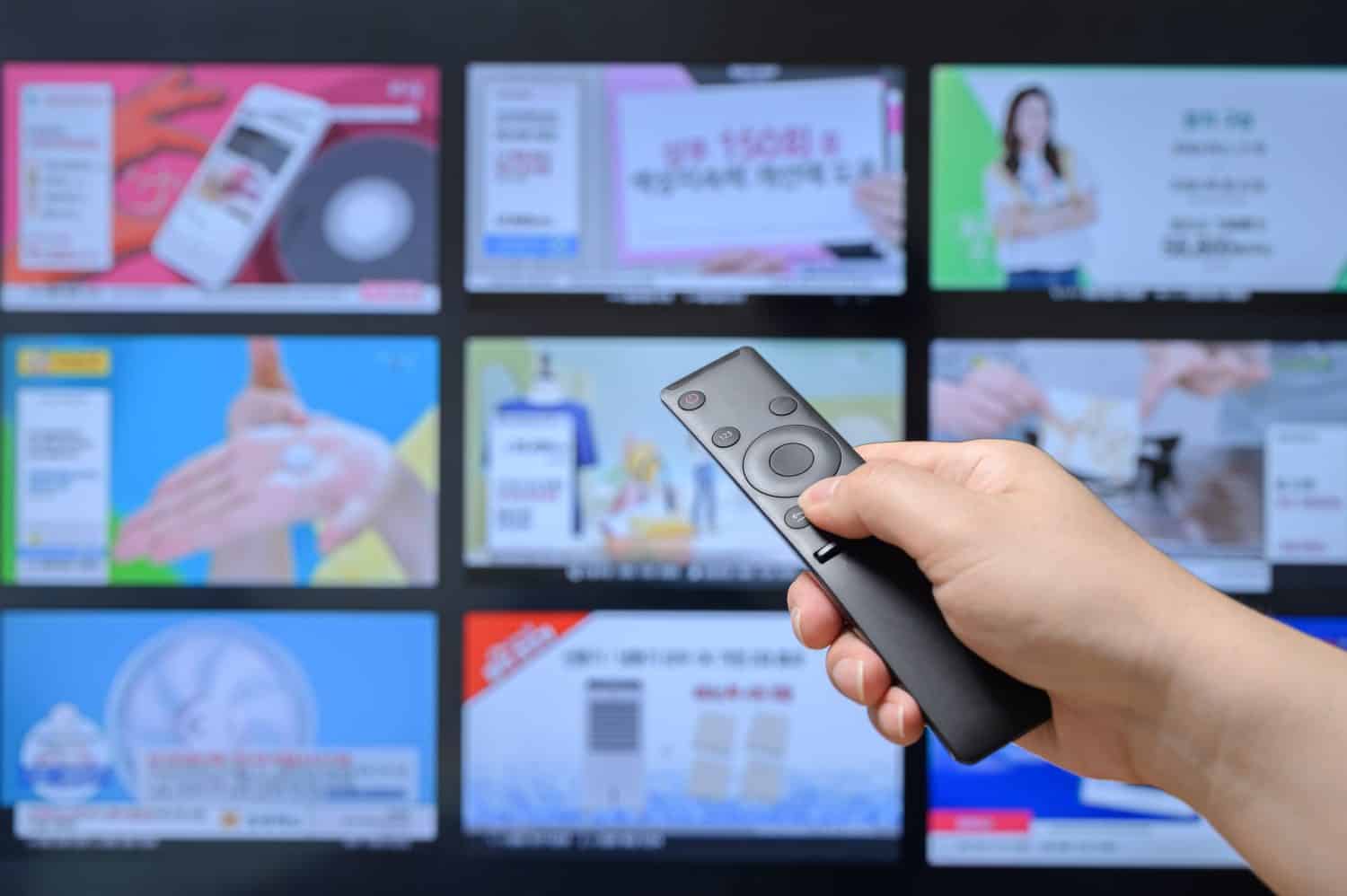Intergenerational strife is pretty normal. Parents wonder why their children don’t want to be just like them. Likewise, their children are striving to develop an independent identity from that of their parents. These completely reasonable feelings lead to feelings of alienation for both parties.
In these interactions, many older folks yearn for a “simpler” time. However, younger people associate those simpler times with sociopolitical strife and social inequity, leading them to feel like the older generations are unempathetic to the struggles of the oppressed. Older generations seem to see that sense of social justice as “unwise” and “worldly.” With more and more tensions rising between younger and older generations in America, let’s look at ten things that baby boomers are doing today that the younger generations just can’t wrap their heads around.
There are many things that baby boomers do that younger generations can’t fathom doing. In many cases, these are products of the time that baby boomers went through their formative years. However, we tried to choose things that were less politically divisive and more things that focused on behaviors that were just unusual or unfamiliar to younger people.
We also tried to choose things that—if changed—would tangibly benefit baby boomers by improving their social or economic environments. While many of these things are harmless in a vacuum, there’s no reason to continue doing things that are dangerous or even simply inefficient. So, changing some of these behaviors could improve baby boomer’s lives as they enter old age groups. (For more baby boomer things that confuse other generations, check out Baby Boomer Phrases That Will Make You Scratch Your Head.)
Bizarre Typing Habits

More workplaces are focusing on improving their tech sector and moving jobs to online portals that allow their employees to work from home instead of coming to the office. While many baby boomers associate this with “younger laziness” in not wanting to go to an office to perform a job they can do from home, it’s actually an optimization factor.
Renting office spaces is a huge cost and many companies are now realizing that they don’t have to bear this burden when they could get the same or better productivity by letting their employees work from their home offices. Simply put, the cost to micromanage and hold your employees hostage for eight hours is no longer regarded as worth the operating costs of an office space.
Bizarre Typing Habits

However, the move to a digital platform means that all employees need to adapt to communication that focuses on online workspaces. Simply put, it’s a good thing my dad’s business does little written communication and what communication he does do through words is done by my mother.
My dad’s writing skills are just not that great and it’s not limited to his texting, though his digital writing is significantly worse than his handwritten work. His handwriting might be physically difficult to read, but he generally constructs sentences correctly when writing by hand. I cannot say the same about his texting.
Boomers often text in all caps, which comes across as aggressive and is physically harder to read. They also often use odd grammar and make up new acronyms on the fly, expecting you to know what they mean. Many times this can end up with a text that is completely unreadable and incoherent, which they, of course, blame on the reader rather than the writer.
Multi-Level Marketing Scams

Every time we think that multi-level marketing scams are on their way out, a new one catches the eyes of a batch of gullible folks. However, no one is better at falling for multi-level marketing scams than boomers. While the idea of “being your own boss” and “becoming an entrepreneur” is certainly compelling, it doesn’t take a rocket scientist to realize that these are not what multi-level marketing scams are offering.
Multi-level marketing scams rely on a participant selling products to people who are at a lower level in the company than they are to make money. Most of a participant’s money won’t come from selling products to a customer, but rather to people who are below them in the company who then sell meager amounts of items to customers.
Multi-Level Marketing Scams

Not only are multi-level marketing schemes of dubious legality, but they’re also not a good way to make money. Most participants end up with a huge surplus of products they’re unable to sell. They also drive away their support network since the people close to them eventually get sick of being asked to join their scam. With no support network left, these people end up falling further into the cult mentality as it represents the only people left who will support them and their “business.”
There’s no shortage of fools who will part with their money to sell cheap, dubious products to other fools. However, young people are much less likely to end up entrenched in these scams than their older counterparts. People aged 45 and above make up almost 50% of the participants of direct selling companies (25% 45–54 and 23% 55+) compared to 26% between 35-44, which is the largest individual age bracket.
Buying Things From Infomercials

If you don’t remember infomercials, we don’t blame you. Cable TV has been on the out for a while, gradually being replaced by streaming services like Netflix, Hulu, and Disney+. However, baby boomers are keeping the cable TV industry alive, and with that, they’re also keeping infomercials alive.
Informercials are just a type of television commercial (an advertisement, for young people) where they sell some kind of novelty product that ranges from “I guess that’s kind of neat” to “That’s a complete scam. What the heck?” Typically an infomercial requires you to order it by calling a number and giving them your credit card information over the phone and they’ll offer you a super discount if order right now. Sound compelling? We don’t think so either.
Buying Things From Infomercials

Now, I’m unique in that I do remember infomercials as my family had cable TV during the time when they were really popular. However, my parents do not care for infomercials at all. So, I don’t get the appeal since I never owned a single thing from an infomercial. Thus, whatever magic these boomers are remembering just doesn’t land with me and my boomer parents.
One thing about infomercials and their popularity with boomers really gets me. Boomers often consider online shopping to be “unsafe” as they believe that entering their credit card number into an internet portal will result in their credit card getting skimmed. However, they’ll gladly hand their credit card information over to someone on the phone. A communication method with no logs that prove who you gave your card to and whether you personally authorized it? Make it make sense.
Using Yahoo

Boomers overwhelmingly use email platforms like Yahoo and AOL, which experts widely regard as outdated, insecure, and lacking in features and integrations. We get it. You’ve had the same Yahoo email for the last thirty-five years and change is hard, but this one ties into the whole boomer pseudo-obsession with internet privacy and safety.
They claim that the government is out to steal their data, and to their credit, the U.S. government loves to steal citizens’ data. However, there’s no bigger complicit force in this than their darling Yahoo, which came under fire for allegedly giving the U.S. government direct access to its incoming emails. That’s right, Yahoo might have let the government read users’ emails and even scanned them to make the process more efficient for them.
Using Yahoo

We want to point out that Yahoo’s response wasn’t that good either. Their initial response simply stated that they were “a law-abiding company” and made no mention of the allegations at all. The second response stated that the scanning program Reuters alleged in their report “does not exist” but stopped short of claiming that it never existed.
This is just another strange example of the “internet privacy and safety” generation proving that they know nothing about internet privacy or safety. They’d rather continue to use the same email than protect their privacy because change is scary. Giving the government access to my emails isn’t something I’m comfortable with. I’ll stick to a more privacy-focused provider with E2EE, which is just another thing boomers tend not to understand but should.
Watching Home Shopping Channels

If you find infomercials mysterious, you’ll never guess that there are whole cable television channels only for infomercials. We call them home shopping channels and they were the precursor to online shopping in that you could browse selections of products from the comfort of your own home, order them remotely, and have them shipped to your house. However, there are some notable downsides when you compare home shopping channels to online marketplaces.
Watching Home Shopping Channels

Firstly, you have to be present when the infomercial plays to know that a product exists. There’s also no search function since it’s a cable television station and not a marketplace. So, if you’re looking for anything specific, you won’t be able to find it on a home shopping network. With online marketplaces, I can just search for what I want in a search engine like Google or DuckDuckGo and the results will populate from multiple marketplaces if the product I’m looking for exists. With a home shopping network, I can only buy what I happen to physically be present to see on the television.
Additionally, there’s a lack of security involved in buying products over the phone. Doing business over the phone robs you of a paper trail. There are no logs that show the contents of the conversation or its parties. So, if something goes wrong, you’re starting behind the curve. Then, there’s the fact that shipping from home shopping channels takes forever and the products are generally both overpriced and sold at a higher price than the same products or an equivalent alternative when compared to online marketplaces.
Reading Shopping Catalogs

Most of my mail gets binned anyway, but since my trash and recycling are right next to my door, I can toss shopping catalogs that arrive at my home extra fast. Baby boomers are the overwhelming majority of purchases from shopping catalogs, and subscribers to receive these magazines. Many younger folks have never even looked in a shopping catalog before. Some may have never received one in the mail in their entire lifetime. Lucky you, I don’t subscribe to any but they show up anyway and waste more paper and space in my mailbox. If you thought that home shopping channels were mysterious, shopping catalogs will floor you.
Reading Shopping Catalogs

A shopping catalog is exactly what it sounds like — a magazine filled with things you can buy. Typically the catalogs feature items from a specific retailer, but some catalogs might feature stuff from multiple companies.
How you order the stuff inside varies. In some cases, you can call or use an online portal that the company lists in the catalog. However, some require you to mail your order to the company. So, you have to wait for the post office to deliver the original order, then the company has to pack and ship, and only then can the order finally start delivery to your home.
Like shopping channels, these are on their way out and it’s baby boomers who are keeping them afloat. They are inefficient and the catalogs typically sell products for higher prices even though the shipping takes two to three times as long.
Getting Addicted to 24-Hour News Stations

Maybe it’s the millennial news fatigue in me, but I can’t even consider turning on a 24-hour news station. If I want to know a piece of news, I’ll look it up and if it’s really pertinent to me, others will share it across platforms that I can surf at my leisure. I don’t need—or even want—to be inundated with constant updates on breaking news.
A more recent development in the sociopolitical climate is “24-Hour News Station Orphans.” The term originally started as “Fox News Orphans,” but the truth is that regardless of your personal political beliefs, the same behavior is visible in some older watchers of more left-leaning news sources as well.
The concept revolves around young people whose relationships with their loved ones have been irreparably harmed by a veritable addiction to a 24-hour news station. With many young people being left-leaning, an addiction to more abrasive Fox News personalities can be perceived as a bigger problem, but it’s equally exhausting to have someone whose whole personality seems to become parroting MSNBC taglines.
Getting Addicted to 24-Hour News Stations

The truth is: I’m a Fox News Orphan. When my dad discovered Fox News, he changed. He started spewing hateful rhetoric as casually as if he were talking about the weather. It became harder to talk to him and harder to spend time with him because while I don’t mind a little bit of political discourse, hearing him say hateful things about groups that I belong to is tiring. It’s not that I don’t love him. It’s that I don’t love hearing about how people who look like me, act like me, or are like me should face deportation, camps, or whatever Tucker Carlson’s buzzword is this week.
Recommending Unpaid Internships

Two business colleagues working together in meeting space. Mentor instructing newcomer. Young Indian woman with laptop and mid adult man with tablet discussing new project. Teamwork or training concept (Two business colleagues working together in meet
It’s not that “nobody wants to work”, contrary to many people’s beliefs. People don’t actually like to be idle and if they can do something that’s rewarding and doesn’t cause them immense stress and harm, they will. There’s a catch though. Young people aren’t going to work for free.
Unpaid internships and “volunteer” work positions aren’t appealing to most young people. The younger generations have an immense financial burden with trillions of dollars in student debt and wages that don’t reflect the cost of living increases. Many boomers will recommend that we take unpaid internships to get experience, but I have to ask… does experience keep a roof over my head? Put food on my table? Pay for my life-saving medications? No? Then, it’s useless to me.
Recommending Unpaid Internships

Young people are champions of workers’ rights more than ever. The bleak financial landscape of the global economy leaves us in a bad position and we’re using our existences to change that for the next generations. It’s not that nobody wants to work. It’s that nobody wants to work for you. You don’t give benefits, pay as little as you can, as infrequently as you can, and your work conditions stink. Boomers spent years telling us that if we wanted to have enough money to get by, we should get better jobs. So, we did, and now there’s no one to work for you.
Making Everything About Gender

There’s a prevailing myth amongst boomers that young people wanting respect for their personal gender identity in conversation is “making everything about gender.” However, that’s not really the truth, is it? After all, who is it that arbitrarily designates colors, toys, clothes, music, drinks, and really anything as being for “boys” or “girls?”. I’ve been told I can’t possibly be a real man because my hair is long, I dance when I listen to music, I have a cat, I like Kuromi and other Sanrio characters, I recycle, I use words that are too long, I wash my face twice a day, use moisturizer, know the word “exfoliator” — the list goes on.
Making Everything About Gender

It’s young people that are saying “You wanna be a man and wear a skirt? Right on, dude, stick it to the man!” Boomers are the ones clutching their pearls when someone they’ve designated “male” says “Hey, I wanna see the Barbie movie” or when someone they’ve designated “female” says “I don’t think being a mother is my dream.”
You know what the truth is? Being a stay-at-home mother has some crucial drawbacks that make it unideal for many people. Also, liking the Barbie movie doesn’t make me less of a man. It just makes me a guy who liked the Barbie movie. It’s not that deep.
Deconstructing gender and making it a more fluid, opt-in experience doesn’t take your gender or your personal gender expression away from you, nor is it “making everything about gender”. It’s making fewer things about gender, like just unconditionally letting your kids have the toys they want regardless of the typical “gender” association.
Complaining About Service Workers

Disgruntled restaurant guest talking to waitress
Some service workers are rude or do their jobs poorly, but given that their wages are terribly low, I just want them to have a break. Yeah, if my order is wildly wrong, I’ll send it back, but I can do that with politeness and grace. Many times when I see baby boomers interacting with service workers, they’re so unbelievably rude. They’ll treat these people horribly and expect the service workers to be grateful for their mere presence in the establishment.
Complaining About Service Workers

As someone who once worked in customer service, I had a series of interactions that I could predict from a mile away. I worked at a store that sold video games and in the city my store was in, I legally had to ask for ID and enter information from that ID whenever someone purchased a game that was Rated M. Not doing so would cause me to lose my job and could cause the store to shut down entirely because of the legal ramifications.
However, whenever I would ask a baby boomer for their ID, they would throw a holy tantrum at my register. Did I make the law? Do I think the law actually does anything? Would I enforce it if I didn’t have bills to pay? No. However, I have bills. You have bills. We all have bills, and I had to enforce that law to pay my bills. So, cough up the ID or step out of my store, thanks.
The customer service employees did not set the price of the products or the store’s policies. The waiter did not make your food. Be nice to them. (Speaking of food, next, read 21 Italian Dishes Baby Boomers Love the Most.)